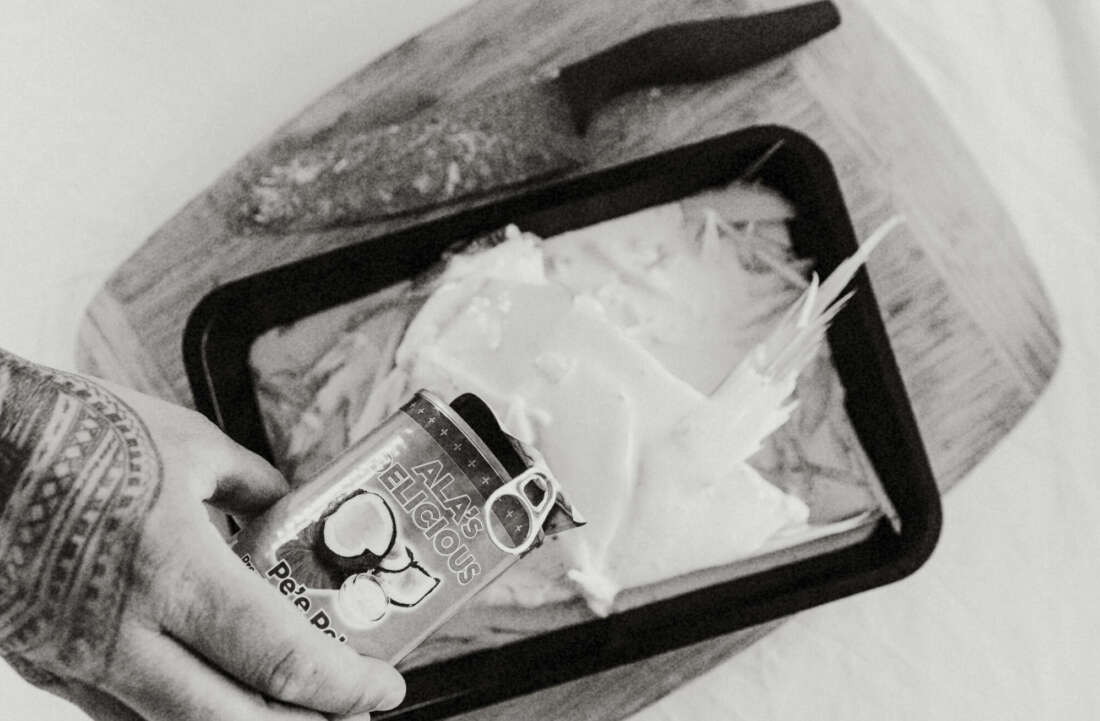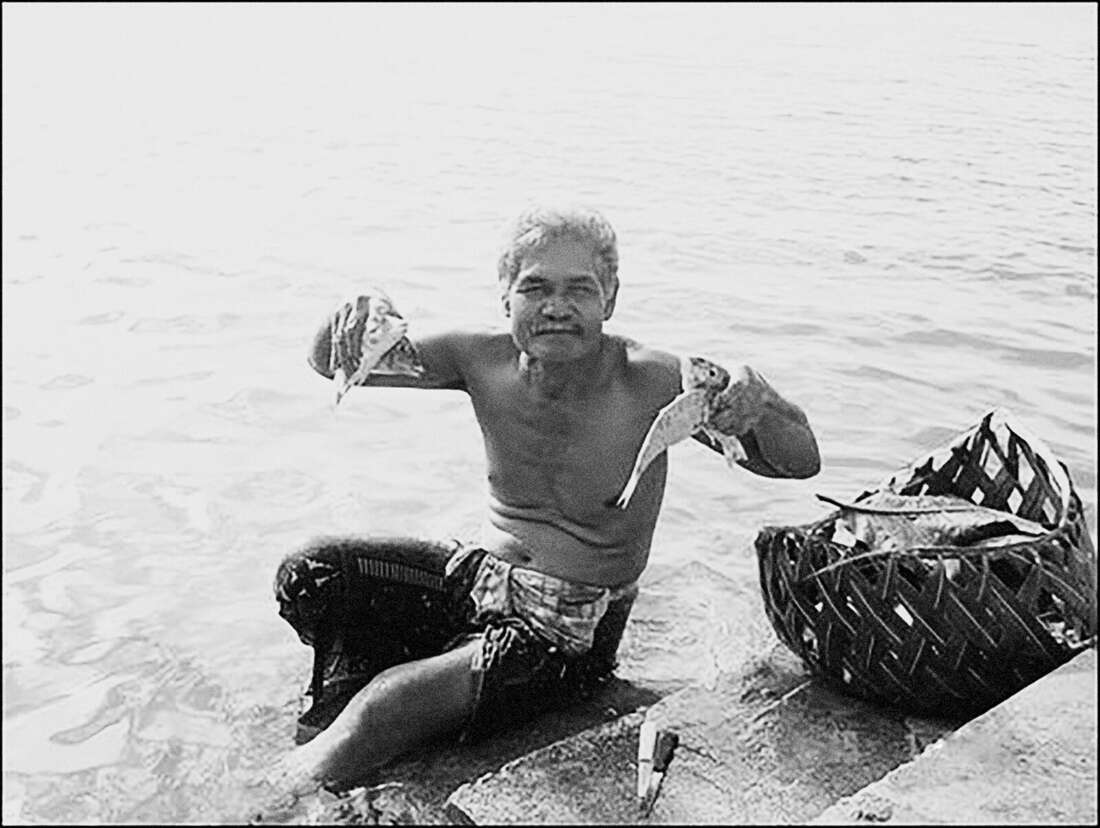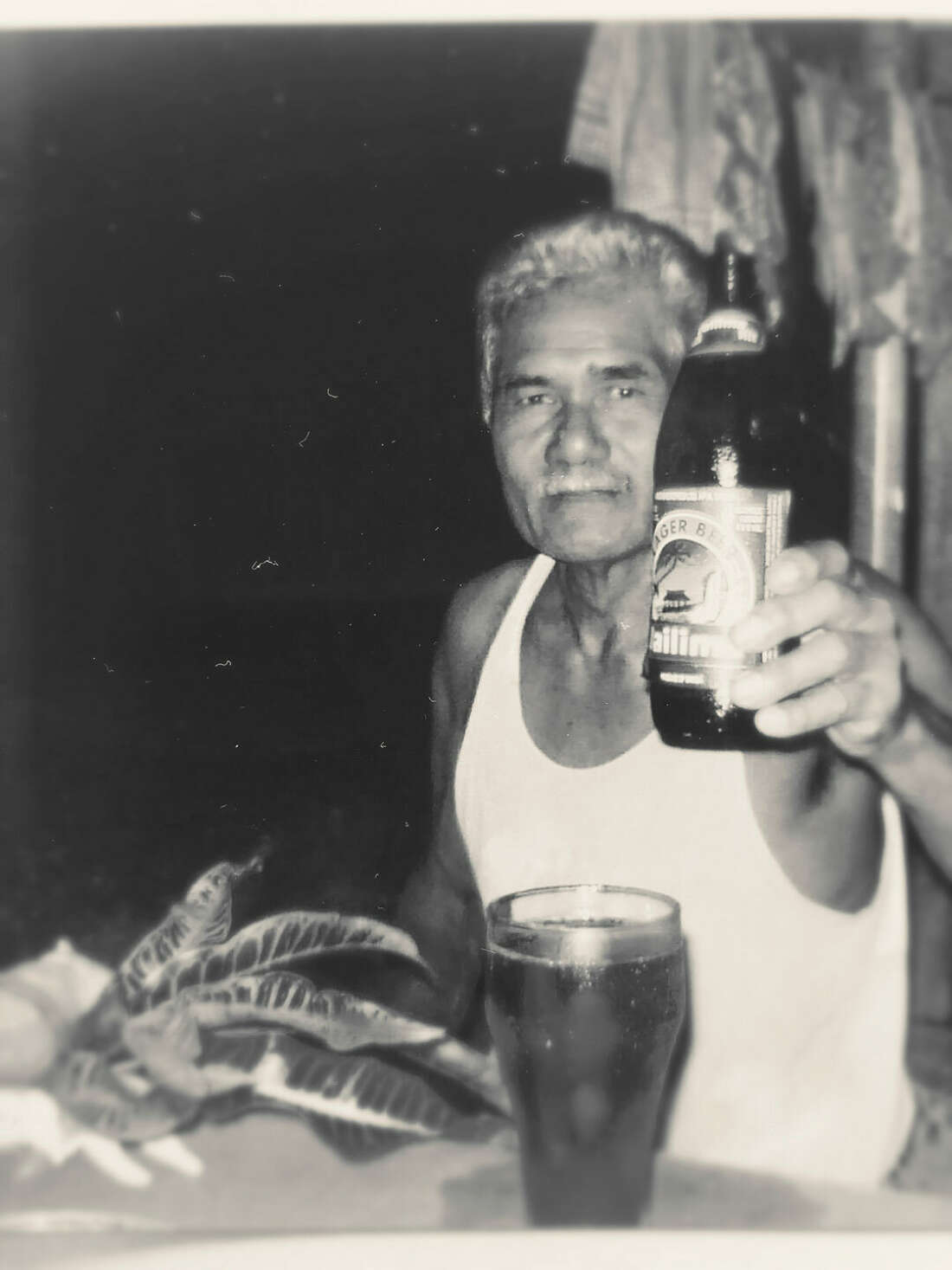Category — Features

Old School Papa – keeping it real, fresh and local
The first Covid-19 lockdown felt like the return to a simpler time for me. Almost like the time my grandparents grew up in, when it was less of a rat race. I still had the structure of work, but things slowed down. I didn’t see as many people, I had more time to garden and cook, to be more in touch with myself and others – things we usually neglect when we’re working hard on the daily grind.

Sadly, early in the lockdown my grandfather Pulumautau Mulipola Seiuli Aiono Aupa’au passed away. It was also a mournful time for our family. Papa was a central figure in our lives. I have a lot of cousins around my age, and the combination of his passing and the time Covid gave us brought us together a lot online. Some of us were working from home, some were out of work; we were able to check in with each other multiple times a day and see what was up. We all love food, Papa gifted us that. Everything was based around food for him, preferably big meals with family. So we started sending each other pictures, trying to outdo each other with what we were cooking and eating. Mostly recipes that Papa had taught us, dishes that reminded us of him. His passing was early in Covid, but the food battle continues…he got us on a roll.
Fishing and maintaining the crops were Papa’s way of life. Growing up on the boats in a fishing family and working on a plantation in Samoa. When he moved to New Zealand and raised his family, he brought that with him. No matter where he lived he always had a garden and a supply of fresh fish. Papa was all about keeping it real and fresh and local.
When I step back and contemplate the way I think about food, about ninety percent of it comes directly from him. I’ve learnt a lot myself, but the tradition and skills come from Samoa. This informs my connection to wild food in the Nelson region. Nothing beats catching a fish, or having a friend that goes hunting or gives you fresh vegetables from their garden, that you can cook for your friends and loved ones. It’s much more satisfying and rewarding when you are connected to the places and people your food comes from. The hard work, love and passion that go with it, rather than going to PACK’n SAVE to buy x,y and z. If a mate goes hunting and fills my freezer with venison, it has a flow on effect. He knows I’ll really enjoy and utilise it, but also that I won’t keep it in my freezer. I’ll share it with friends that don’t have the access who will love it as well. What goes around comes around.
I continue to learn about food and sharing every day, and if Papa was still alive, I could challenge him to take a different approach to certain things, and we could learn from each other. I could continue to learn old school and he could adapt to new school. But I’m looking forward to continuing on the path he set me on. I really want to hold on to these practices from my grandparents, to learn the recipes and the harvesting from simpler times, and pass them on to the next generation, to make sure they’re never lost.
The dish that reminds me most of Papa is ulu I’a (fish head) and taro in coconut cream, it was his favourite dish. It’s the first dish I thought about and then cooked and shared a lot after his passing. It was so common to eat fish head with him, usually on a Sunday when the family would gather. He would take me out on missions in search of ingredients, then we would come home and cook together. Papa believed you shouldn’t waste any part of the fish, which he ingrained in me. But his love of fish head wasn’t really about waste, he believed it was the most prized cut.
This recipe of ulu I’a (fish head) and taro is in loving memory of my Papa, Pulumautau Mulipola Seiuli Aiono Aupa’au
1 Fish head
1 Taro*
2 cans coconut cream
1 large onion, thickly sliced
Paprika, to taste
Fresh chilli or chilli flakes, to taste
Salt and pepper
Pre-heat oven to 180°C.
Place the fish head in a roasting dish, scatter with half of the onion and pour over one can of coconut cream. Sprinkle generously with sea salt, black pepper, paprika and fresh chilli or chilli flakes to taste.
Bake in a preheated oven for approximately 50 minutes, basting three times with the coconut cream as it cooks.
While the fish bakes, remove the skin from the taro and discard. Cut the flesh into steaks about 1cm think. Place in a medium pot with the remaining onion, salt and pepper and cover with a can of coconut cream. Bring to a simmer and cook for around 30 minutes, until softening but still a little firm.
When the fish head is cooked, simply serve it with the cream it was cooked in and the taro on the side.
*If you can’t find taro you can sometimes find cassava in the freezer section, which is a similar texture to taro and common in the islands. If neither taro or cassava are available, replace with kumara.
